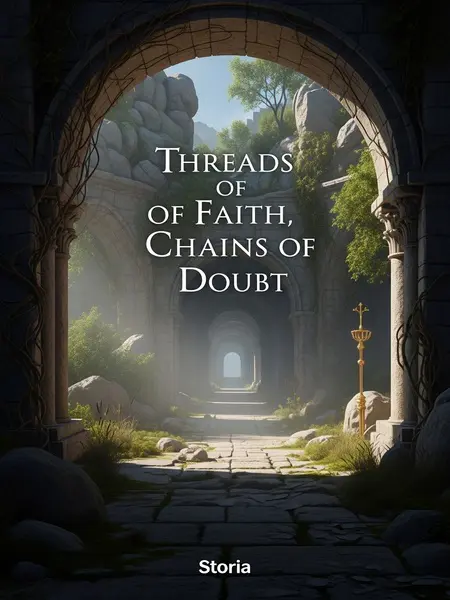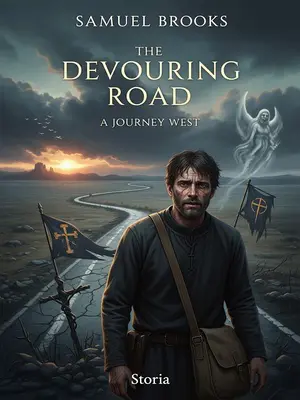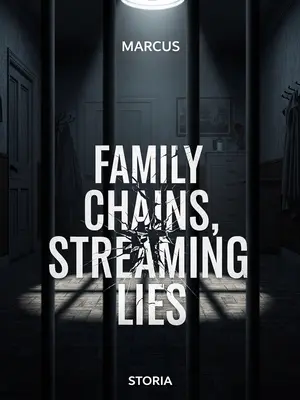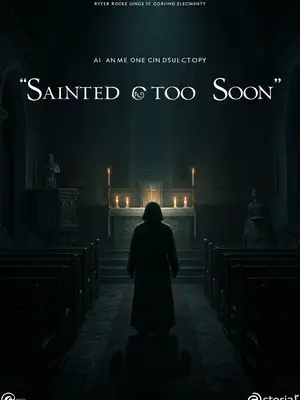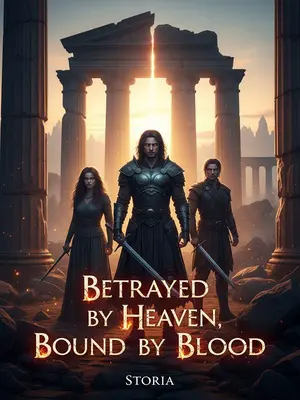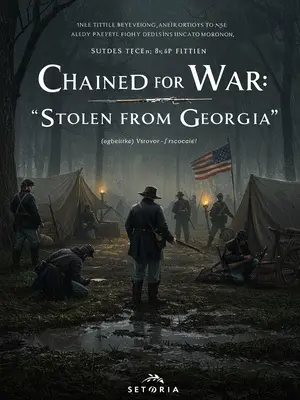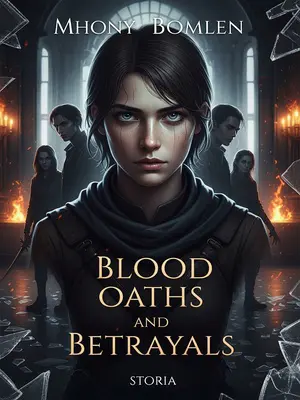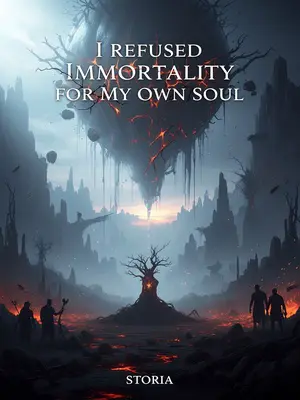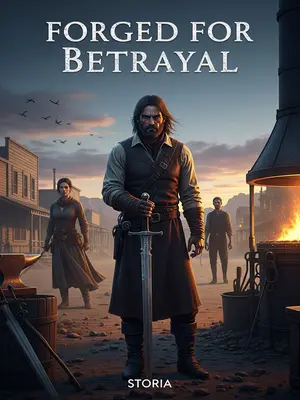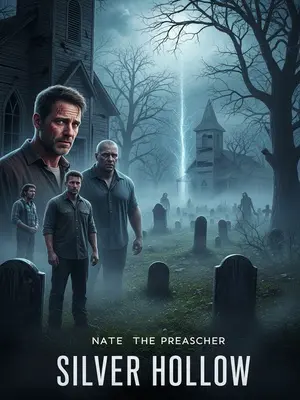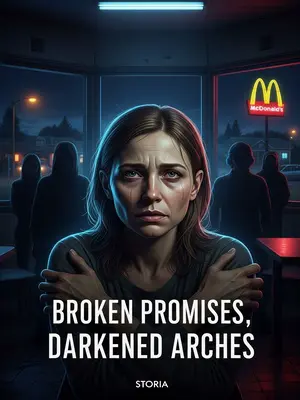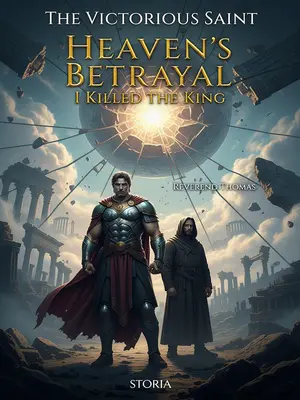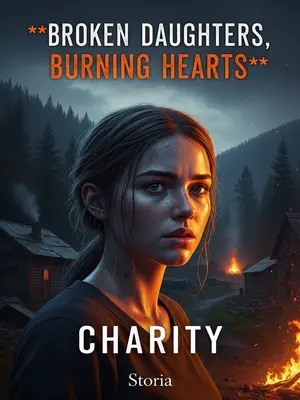Chapter 3: Shadows in the Sanctuary
“So what?”
I shrugged, trying to sound nonchalant, but my voice came out thin. Harrison raised an eyebrow, a half-smile tugging at his lips.
“So what?” He repeated, looking at me. “He always said faith is like building a raft to cross a river—the Word is the raft. Once you've crossed, do you still carry the raft? That's why he said the Word should be abandoned, let alone what is not the Word.”
He leaned against the doorframe, arms crossed, waiting for me to catch up. The silence between us grew heavy, filled with unspoken questions.
“I know.”
But the truth was, I only half-understood. Harrison could always see through me, and this time was no different.
“You don't know,” Harrison said. “The Lord always said: 'Once enlightened, there is neither birth nor death, no form, no appearance—everything is emptiness.' But look at him: he established the Sanctuary and became the Supreme.”
His words stung, but I couldn't argue. The Lord had changed, and we all felt it—even if we didn't want to admit it.
“What's wrong with that? Didn't the Lord say everyone should turn to faith?”
I tried to defend our mentor, but my voice wavered. Harrison just shook his head, a sad smile on his lips.
“The Lord once said he and the Devil are two sides of the same coin. He always claimed to have defeated the Devil to reach enlightenment… But I remember clearly, at the time the Devil said: 'I am undying and indestructible. If one day I enter your congregation and alter your scriptures, by then you'll have reached nirvana—neither alive nor dead. Once you reach nirvana, then what?'”
Harrison's voice dropped to a whisper, as if afraid the walls might be listening. The weight of his words pressed down on me, making it hard to breathe.
He looked at me. “Everyone says I'm the first to understand emptiness, but do you know what emptiness is? Emptiness is freedom—unbound, neither alive nor dead. This Sanctuary is already paradise, ultimate bliss—so where is emptiness?”
He waited for me to answer, but I had none. The question echoed in my mind, chasing itself in circles.
After saying this, Harrison left.
He walked out the front door, not looking back. I stood there, the silence ringing in my ears, wondering if I'd ever see him again.
He went to seek his own freedom.
Some say he wandered the back roads for years, living off the land, chasing something no one else could see. I like to think he found it—whatever 'freedom' means in a world like ours.
Not long after he left, my eyes began to fail.
It started small—a blur at the edge of my vision, colors fading like old photographs. But soon, everything seemed off, as if the world had shifted just out of reach.
I kept thinking about the freedom he spoke of, and my vision started to go.
Some nights, I'd lie awake, replaying our last conversation. The more I thought about it, the less I could see. It was as if doubt itself was eating away at my sight.
The Lord's appearance suddenly changed. He used to have kind brows and gentle eyes, with a golden halo above his head. Now he looked like a monster—blue-faced, fanged. The saints, angels, even the apostles around him changed too.
It was terrifying—like waking up in a nightmare you can't escape. The faces I'd trusted became twisted, monstrous. The sanctuary felt colder, the light harsher. I kept rubbing my eyes, hoping it was just fatigue, but nothing helped.
Each had five faint threads attached: a thick one at the head, and four thinner ones at the limbs. The thick one split at the head into six, reaching the eyes, ears, nose, and tongue. It was like some puppetmaster's trick, and it chilled me to the bone.
The threads shimmered in the air, barely visible, like cobwebs in sunlight. They pulsed with every word, every gesture, binding the saints and angels in a dance they couldn't escape.
Yet they still wore robes, stood on marble pedestals, hands folded in prayer. Whenever the Lord made a gesture, they'd chant, “Amen.”
The rituals continued, as if nothing had changed. The congregation didn't seem to notice. I watched, heart pounding, as the monsters mouthed the words of faith, their voices hollow and strange.
I knew there were no monsters in the Sanctuary, so there were only two possibilities: either my eyes were faulty, or they had all become monsters.
I clung to the hope that it was just my failing vision—a trick of the mind, nothing more. But deep down, I wasn't so sure.
I always thought it was my eyes—until one day, Gideon Green arrived.
Gideon Green, the father of the earth-bound (a legendary farmer and innovator), came to the Sanctuary to ask the Lord for a technique.
He arrived on a rainy afternoon, boots muddy from the long road. Gideon was a legend in his own right—a farmer, inventor, and quiet dreamer. People said he could coax life from barren soil, that his apple trees bore fruit sweeter than any other.
As the father of the earth-bound, he'd invented a method to make plants grow quickly, but he couldn't get the apple tree to bear fruit faster—even though he'd managed everything else.
